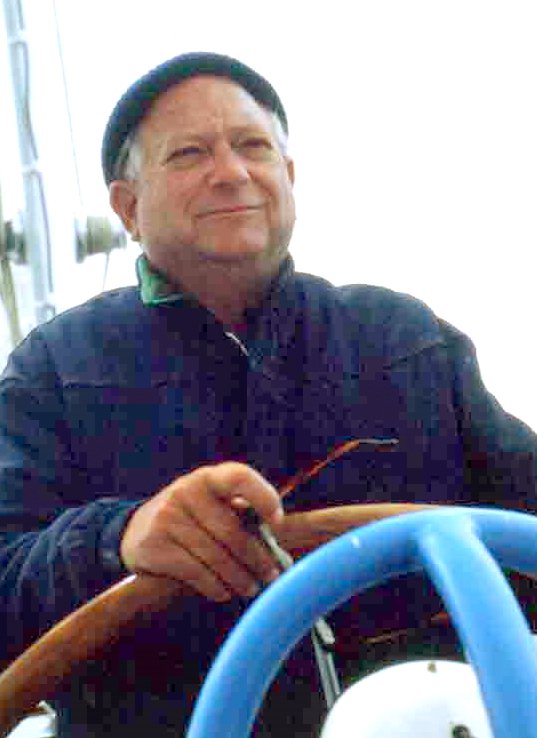“Nothing is more conspicuous than a farting princess.”
Fonte: Lyonesse Trilogy (1983-1989), Suldrun's Garden (1983), Chapter 3, section 3 (p. 31)
John Holbrook Vance foi um escritor de ficção científica e fantasia estadunidense, embora o próprio Vance tenha por diversas vezes se manifestado contra esses rótulos.[carece de fontes?] A maior parte do seu trabalho foi publicado sob o nome Jack Vance. Vance publicou 11 histórias de mistério como John Holbrook Vance e 3 como Ellery Queen. Utilizou ainda outros pseudônimos, tais como Alan Wade, Peter Held, John van See, Jay Kavanse.
Entre suas premiações estão o Hugo Award ; um Nebula Award em 1966, também por The Last Castle; o Jupiter Award em 1975; o World Fantasy Award em 1984 pelo conjunto da obra e em 1990 por Lyonesse: Madouc; um Edgar Award pelo melhor romance de mistério de 1961 por The Man in the Cage. Em 1992 ele foi Convidado de Honra da WorldCon em Orlando, Flórida; e em 1996 foi nomeado Grande Mestre da SFWA.
No geral, é tido em alta estima por críticos e colegas de profissão, alguns dos quais sugeriram que ele transcende rótulos de gênero e deveria ser considerado como um escritor importante pelos padrões da literatura convencional. Poul Anderson, por exemplo, certa vez chamou-o de "o maior escritor estadunidense vivo" na ficção científica .
Wikipedia

“Nothing is more conspicuous than a farting princess.”
Fonte: Lyonesse Trilogy (1983-1989), Suldrun's Garden (1983), Chapter 3, section 3 (p. 31)
Fonte: Lyonesse Trilogy (1983-1989), The Green Pearl (1985), Chapter 12, section 1 (p. 545)
“You are a particularly clever girl: almost as clever as you are appealing to the eye.”
Fonte: Lyonesse Trilogy (1983-1989), The Green Pearl (1985), Chapter 16, section 3 (p. 635)
“He was neither lazy nor incompetent; he merely had occupational claustrophobia.”
Fonte: Space Opera (1965), Chapter 4 (p. 30)
Fonte: Dying Earth (1950-1984), Cugel's Saga (1983), Chapter 1, section 1, "Flutic"
“The life we’ve been leading couldn’t last forever. It’s a wonder it lasted as long as it did.”
Fonte: The Last Castle (1966), Chapter 2, section 1
Fonte: Dying Earth (1950-1984), The Dying Earth (1950), Chapter 6, "Guyal of Sfere"
“Another busy day! So let’s to business. The clock moves forward; wasted time is life defeated!”
Fonte: To Live Forever (1956), Chapter VIII, section 3
Fonte: Dying Earth (1950-1984), Cugel's Saga (1983), Chapter 3, section 2, "Faucelme"
“A notable scheme has occurred to me.”
Fonte: Lyonesse Trilogy (1983-1989), The Green Pearl (1985), Chapter 1, section 4 (p. 371)
“It had been suggested to her that the flaw lay not in the universe but in herself.”
Fonte: Dying Earth (1950-1984), The Dying Earth (1950), Chapter 3, "T'Sais"
“Why not alter the habits of a lifetime and speak with candour?”
asked Shimrod. “Truth, after all, need not be only the tactic of last resort.”
Fonte: Lyonesse Trilogy (1983-1989), The Green Pearl (1985), Chapter 17, section 2 (p. 657)
“You drink only sparingly. Is the beer too thin?”
“No at all. I merely wish to keep my wits about me. It would not do if both of us became addled, and later woke up in doubt as to who was who.”
Fonte: Lyonesse Trilogy (1983-1989), The Green Pearl (1985), Chapter 6, section 4 (p. 447)
Fonte: Demon Princes (1964-1981), The Book of Dreams (1981), Chapter 14 (p. 347)
Fonte: Demon Princes (1964-1981), The Book of Dreams (1981), Chapter 7 (p. 264)
“May I inquire as to your motives?”
“Why do you trouble to ask? You would believe nothing told you.”
Fonte: Demon Princes (1964-1981), The Face (1979), Chapter 13 (p. 166)
“The seconds marched past, traversing that mysterious boundary which separates future from past.”
Fonte: Demon Princes (1964-1981), The Face (1979), Chapter 11 (p. 145)
“I can tell you this at least. The most convincing disguise for legitimacy is legitimacy itself.”
Fonte: Demon Princes (1964-1981), The Face (1979), Chapter 1 (p. 12)
Fonte: Demon Princes (1964-1981), The Palace of Love (1967), Chapter 12 (p. 415)
“Candor is never indiscreet. Truth, which is to say, the reflection of life, is beautiful.”
Fonte: Demon Princes (1964-1981), The Palace of Love (1967), Chapter 9 (p. 381)
“Art implies discipline; the more excellent the art, the more rigorous the discipline.”
Fonte: Demon Princes (1964-1981), The Palace of Love (1967), Chapter 7 (p. 356)
Fonte: Demon Princes (1964-1981), The Palace of Love (1967), Chapter 6 (p. 346)
Fonte: Demon Princes (1964-1981), The Palace of Love (1967), Chapter 5 (p. 343)
Fonte: Demon Princes (1964-1981), The Palace of Love (1967), Chapter 5 (p. 342)
Fonte: Demon Princes (1964-1981), The Killing Machine (1964), Chapter 12 (p. 282)